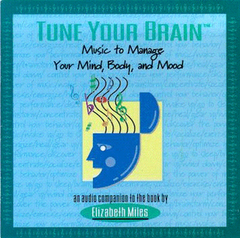I've been delighted to see Oliver Sacks' book Musicophilia get widespread media attention and popular support. Dr. Sacks' earlier work was pivotal in turning me to mine. Before PET scans, MRIs, and other brain imaging technologies came along to start to shed light on the structural sources of music's profound and diverse powers, Dr. Sacks was telling the tale in human terms -- for instance, in The Man Who Mistook His Wife for a Hat, first out in 1985. Now, with the technological revolution in brain research well underway, Dr. Sacks is back with a book that brings new discoveries to bear (mostly in footnotes) but still focuses, insistently, on the human experience of music's workings on the brain, and the brain's workings on music.
I may be six months late in chiming into the commentary on the book, while I read and absorbed it and did a lot of other things, but this is a work with legs to last through time. So without worries that Musicophilia's fifteen minutes have flown, comment I will -- a bit at a time, as relates to braintuning principles, or not.
In Chapter 1, "A Bolt from the Blue: Sudden Musicophilia," Dr. Sacks examines people whose musical response or even talent intensify dramatically after a brain event. His centerpiece is a surgeon, medically adept but a music know-nothing, who gets struck by lightning, develops an unprecendented longing for piano music, and becomes an acclaimed concert pianist and composer -- as an adult and in fairly short order. If you've ever struggled away at the keyboard and cursed your parents for failing to give you piano lessons in your formative early years, perhaps you should keep an eye out for electrical storms.
This example and others in the chapter show how deeply interwoven our musical response is with our individual brain wiring, and how widely the results can vary between people. Brain differences may well account for at least some aspects of musical talent, and it seems less than far-fetched to think that our neural wiring may also affect our musical preferences, helping to explain how two siblings growing up in the same household at the same time can come out with a taste for Beethoven on the one hand and Limp Bizkit on the other. Trust me, it happens.
Ethnomusicologists and scientists wonder a lot about musical preferences, which can serve to unite and divide alike. As I've previously blogged about, research suggests a correlation between musical preferences and personality (at least within a single musical culture, which I won't try to define here). A common something underlies our individual responses both to music and to life at large. Taken a step further, music not only manifests individually in brain, but in some way lies at the core of our being as a self in the world.
Find out more about what your musical preferences say about you by taking the Short Test of Musical Preferences (STOMP - be careful not to scroll below the line to the scoring portion before you've completed the scale), then comparing your score to various sectors of the population.
Subscribe to:
Post Comments (Atom)




No comments:
Post a Comment